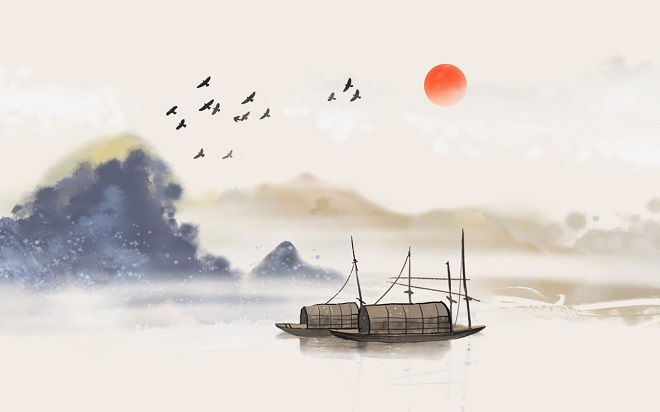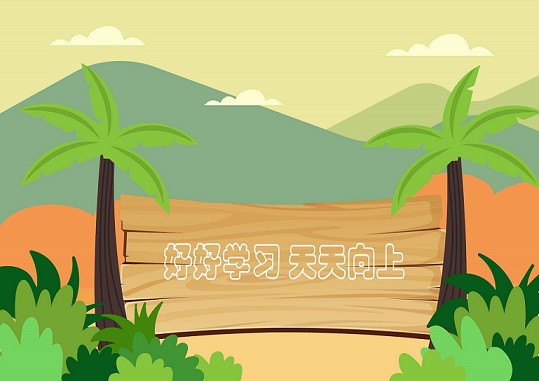Herdsmen enjoy life changes under relocation policy in China's Xinjiang
Duri Jarman (R) talks with his younger brother who also lives in Aimin Village of Taxkorgan Tajik Autonomous County, northwest China"s Xinjiang Uygur Autonomous Region, March 21, 2023.
The life of herdsman Duri Jarman is closely tied to two places: the village of Ak Toga Langar, nestled deep in the mountains of Taxkorgan Tajik Autonomous County, and Aimin Village, located near the county seat.
 (资料图片仅供参考)
(资料图片仅供参考)
Duri, now 52 years old, spent 47 years living in Ak Toga Langar Village. In the winter of 2018, his family benefited from the relocation policy for poverty alleviation and settled in Aimin Village.
There, they gradually adapted to the changes, enjoying a new life different from that of their ancestors. Duri and his youngest son, Nurkerim, opened a small shop, while both his eldest and second sons found new jobs. The village committee led the villagers in transforming barren land, leveling it, and repairing ditches. Duri"s family was allotted 10 mu (0.67 hectares) of land, which they used to grow forage grass.
After roads are improved, Duri"s family opted for a modern means of transport instead of camels. Nurkerim has also bought a pickup truck which he uses to run a transport service from the county seat to the village and from the county seat to the Kashgar city area.
As spring arrives, Duri"s family and their fellow villagers are celebrating the Noruz Festival, which is observed by various ethnic groups in Xinjiang. They are immersed in the joy of a better life. (Xinhua/Hu Huhu)
Gvzalnur (R, front), niece of Duri Jarman, dances with her friend at Duri"s home in Aimin Village of Taxkorgan Tajik Autonomous County, northwest China"s Xinjiang Uygur Autonomous Region, March 21, 2023. The life of herdsman Duri Jarman is closely tied to two places: the village of Ak Toga Langar, nestled deep in the mountains of Taxkorgan Tajik Autonomous County, and Aimin Village, located near the county seat.
Duri, now 52 years old, spent 47 years living in Ak Toga Langar Village. In the winter of 2018, his family benefited from the relocation policy for poverty alleviation and settled in Aimin Village.
There, they gradually adapted to the changes, enjoying a new life different from that of their ancestors. Duri and his youngest son, Nurkerim, opened a small shop, while both his eldest and second sons found new jobs. The village committee led the villagers in transforming barren land, leveling it, and repairing ditches. Duri"s family was allotted 10 mu (0.67 hectares) of land, which they used to grow forage grass.
After roads are improved, Duri"s family opted for a modern means of transport instead of camels. Nurkerim has also bought a pickup truck which he uses to run a transport service from the county seat to the village and from the county seat to the Kashgar city area.
As spring arrives, Duri"s family and their fellow villagers are celebrating the Noruz Festival, which is observed by various ethnic groups in Xinjiang. They are immersed in the joy of a better life. (Xinhua/Hu Huhu)
Duri Jarman dances to celebrate the Noruz Festival at his home in Aimin Village of Taxkorgan Tajik Autonomous County, northwest China"s Xinjiang Uygur Autonomous Region, March 21, 2023.
The life of herdsman Duri Jarman is closely tied to two places: the village of Ak Toga Langar, nestled deep in the mountains of Taxkorgan Tajik Autonomous County, and Aimin Village, located near the county seat.
Duri, now 52 years old, spent 47 years living in Ak Toga Langar Village. In the winter of 2018, his family benefited from the relocation policy for poverty alleviation and settled in Aimin Village.
There, they gradually adapted to the changes, enjoying a new life different from that of their ancestors. Duri and his youngest son, Nurkerim, opened a small shop, while both his eldest and second sons found new jobs. The village committee led the villagers in transforming barren land, leveling it, and repairing ditches. Duri"s family was allotted 10 mu (0.67 hectares) of land, which they used to grow forage grass.
After roads are improved, Duri"s family opted for a modern means of transport instead of camels. Nurkerim has also bought a pickup truck which he uses to run a transport service from the county seat to the village and from the county seat to the Kashgar city area.
As spring arrives, Duri"s family and their fellow villagers are celebrating the Noruz Festival, which is observed by various ethnic groups in Xinjiang. They are immersed in the joy of a better life. (Xinhua/Hu Huhu)
Duri Jarman (1st R) talks with friends at his home in Aimin Village of Taxkorgan Tajik Autonomous County, northwest China"s Xinjiang Uygur Autonomous Region, March 21, 2023.
The life of herdsman Duri Jarman is closely tied to two places: the village of Ak Toga Langar, nestled deep in the mountains of Taxkorgan Tajik Autonomous County, and Aimin Village, located near the county seat.
Duri, now 52 years old, spent 47 years living in Ak Toga Langar Village. In the winter of 2018, his family benefited from the relocation policy for poverty alleviation and settled in Aimin Village.
There, they gradually adapted to the changes, enjoying a new life different from that of their ancestors. Duri and his youngest son, Nurkerim, opened a small shop, while both his eldest and second sons found new jobs. The village committee led the villagers in transforming barren land, leveling it, and repairing ditches. Duri"s family was allotted 10 mu (0.67 hectares) of land, which they used to grow forage grass.
After roads are improved, Duri"s family opted for a modern means of transport instead of camels. Nurkerim has also bought a pickup truck which he uses to run a transport service from the county seat to the village and from the county seat to the Kashgar city area.
As spring arrives, Duri"s family and their fellow villagers are celebrating the Noruz Festival, which is observed by various ethnic groups in Xinjiang. They are immersed in the joy of a better life. (Xinhua/Hu Huhu)
Neighbors offer their blessings as Duri Jarman relocates to his new home in Aimin Village of Taxkorgan Tajik Autonomous County, northwest China"s Xinjiang Uygur Autonomous Region, Nov. 18, 2018.
The life of herdsman Duri Jarman is closely tied to two places: the village of Ak Toga Langar, nestled deep in the mountains of Taxkorgan Tajik Autonomous County, and Aimin Village, located near the county seat.
Duri, now 52 years old, spent 47 years living in Ak Toga Langar Village. In the winter of 2018, his family benefited from the relocation policy for poverty alleviation and settled in Aimin Village.
There, they gradually adapted to the changes, enjoying a new life different from that of their ancestors. Duri and his youngest son, Nurkerim, opened a small shop, while both his eldest and second sons found new jobs. The village committee led the villagers in transforming barren land, leveling it, and repairing ditches. Duri"s family was allotted 10 mu (0.67 hectares) of land, which they used to grow forage grass.
After roads are improved, Duri"s family opted for a modern means of transport instead of camels. Nurkerim has also bought a pickup truck which he uses to run a transport service from the county seat to the village and from the county seat to the Kashgar city area.
As spring arrives, Duri"s family and their fellow villagers are celebrating the Noruz Festival, which is observed by various ethnic groups in Xinjiang. They are immersed in the joy of a better life. (Xinhua/Hu Huhu)
Nanik Kukan gives a phone call to her busband Duri Jarman in Aimin Village of Taxkorgan Tajik Autonomous County, northwest China"s Xinjiang Uygur Autonomous Region, Nov. 25, 2019. Before the relocation, she had to go to the township government if she wants to call her relatives.
The life of herdsman Duri Jarman is closely tied to two places: the village of Ak Toga Langar, nestled deep in the mountains of Taxkorgan Tajik Autonomous County, and Aimin Village, located near the county seat.
Duri, now 52 years old, spent 47 years living in Ak Toga Langar Village. In the winter of 2018, his family benefited from the relocation policy for poverty alleviation and settled in Aimin Village.
There, they gradually adapted to the changes, enjoying a new life different from that of their ancestors. Duri and his youngest son, Nurkerim, opened a small shop, while both his eldest and second sons found new jobs. The village committee led the villagers in transforming barren land, leveling it, and repairing ditches. Duri"s family was allotted 10 mu (0.67 hectares) of land, which they used to grow forage grass.
After roads are improved, Duri"s family opted for a modern means of transport instead of camels. Nurkerim has also bought a pickup truck which he uses to run a transport service from the county seat to the village and from the county seat to the Kashgar city area.
As spring arrives, Duri"s family and their fellow villagers are celebrating the Noruz Festival, which is observed by various ethnic groups in Xinjiang. They are immersed in the joy of a better life. (Xinhua/Hu Huhu)
Nurkerim Duri, youngest son of Duri Jarman, applies flour on visiors" shoulders as a traditional means of blessing in Aimin Village of Taxkorgan Tajik Autonomous County, northwest China"s Xinjiang Uygur Autonomous Region, March 21, 2023.
The life of herdsman Duri Jarman is closely tied to two places: the village of Ak Toga Langar, nestled deep in the mountains of Taxkorgan Tajik Autonomous County, and Aimin Village, located near the county seat.
Duri, now 52 years old, spent 47 years living in Ak Toga Langar Village. In the winter of 2018, his family benefited from the relocation policy for poverty alleviation and settled in Aimin Village.
There, they gradually adapted to the changes, enjoying a new life different from that of their ancestors. Duri and his youngest son, Nurkerim, opened a small shop, while both his eldest and second sons found new jobs. The village committee led the villagers in transforming barren land, leveling it, and repairing ditches. Duri"s family was allotted 10 mu (0.67 hectares) of land, which they used to grow forage grass.
After roads are improved, Duri"s family opted for a modern means of transport instead of camels. Nurkerim has also bought a pickup truck which he uses to run a transport service from the county seat to the village and from the county seat to the Kashgar city area.
As spring arrives, Duri"s family and their fellow villagers are celebrating the Noruz Festival, which is observed by various ethnic groups in Xinjiang. They are immersed in the joy of a better life. (Xinhua/Hu Huhu)
This combo photo shows Nanik Kukan, wife of Duri Jarman, sewing clothes for their relocation in Ak Toga Langar Village deep in the mountains of Taxkorgan Tajik Autonomous County on Nov. 13, 2018 (above) and making hand embroidery at her new home in Aimin Village on June 3, 2020. The life of herdsman Duri Jarman is closely tied to two places: the village of Ak Toga Langar, nestled deep in the mountains of Taxkorgan Tajik Autonomous County, and Aimin Village, located near the county seat.
Duri, now 52 years old, spent 47 years living in Ak Toga Langar Village. In the winter of 2018, his family benefited from the relocation policy for poverty alleviation and settled in Aimin Village.
There, they gradually adapted to the changes, enjoying a new life different from that of their ancestors. Duri and his youngest son, Nurkerim, opened a small shop, while both his eldest and second sons found new jobs. The village committee led the villagers in transforming barren land, leveling it, and repairing ditches. Duri"s family was allotted 10 mu (0.67 hectares) of land, which they used to grow forage grass.
After roads are improved, Duri"s family opted for a modern means of transport instead of camels. Nurkerim has also bought a pickup truck which he uses to run a transport service from the county seat to the village and from the county seat to the Kashgar city area.
As spring arrives, Duri"s family and their fellow villagers are celebrating the Noruz Festival, which is observed by various ethnic groups in Xinjiang. They are immersed in the joy of a better life. (Xinhua/Hu Huhu)
Duri Jarman checks a refrigerator he has bought for his store in Aimin Village of Taxkorgan Tajik Autonomous County, northwest China"s Xinjiang Uygur Autonomous Region, June 24, 2020.
The life of herdsman Duri Jarman is closely tied to two places: the village of Ak Toga Langar, nestled deep in the mountains of Taxkorgan Tajik Autonomous County, and Aimin Village, located near the county seat.
Duri, now 52 years old, spent 47 years living in Ak Toga Langar Village. In the winter of 2018, his family benefited from the relocation policy for poverty alleviation and settled in Aimin Village.
There, they gradually adapted to the changes, enjoying a new life different from that of their ancestors. Duri and his youngest son, Nurkerim, opened a small shop, while both his eldest and second sons found new jobs. The village committee led the villagers in transforming barren land, leveling it, and repairing ditches. Duri"s family was allotted 10 mu (0.67 hectares) of land, which they used to grow forage grass.
After roads are improved, Duri"s family opted for a modern means of transport instead of camels. Nurkerim has also bought a pickup truck which he uses to run a transport service from the county seat to the village and from the county seat to the Kashgar city area.
As spring arrives, Duri"s family and their fellow villagers are celebrating the Noruz Festival, which is observed by various ethnic groups in Xinjiang. They are immersed in the joy of a better life. (Xinhua/Hu Huhu)
This combo photo shows Nanik Kukan, wife of Duri Jarman, fetching coal for cooking in Ak Toga Langar Village deep in the mountains of Taxkorgan Tajik Autonomous County on Nov. 16, 2018 (above) and Duri Jarman repairing liquid gas storage tank at his new home in Aimin Village on June 3, 2020.
The life of herdsman Duri Jarman is closely tied to two places: the village of Ak Toga Langar, nestled deep in the mountains of Taxkorgan Tajik Autonomous County, and Aimin Village, located near the county seat.
Duri, now 52 years old, spent 47 years living in Ak Toga Langar Village. In the winter of 2018, his family benefited from the relocation policy for poverty alleviation and settled in Aimin Village.
There, they gradually adapted to the changes, enjoying a new life different from that of their ancestors. Duri and his youngest son, Nurkerim, opened a small shop, while both his eldest and second sons found new jobs. The village committee led the villagers in transforming barren land, leveling it, and repairing ditches. Duri"s family was allotted 10 mu (0.67 hectares) of land, which they used to grow forage grass.
After roads are improved, Duri"s family opted for a modern means of transport instead of camels. Nurkerim has also bought a pickup truck which he uses to run a transport service from the county seat to the village and from the county seat to the Kashgar city area.
As spring arrives, Duri"s family and their fellow villagers are celebrating the Noruz Festival, which is observed by various ethnic groups in Xinjiang. They are immersed in the joy of a better life. (Xinhua/Hu Huhu)
This combo photo shows the exterior view of Duri Jarman"s new house upon his relocation in Aimin Village of Taxkorgan Tajik Autonomous County on Nov. 18, 2018 (above) and Duri Jarman watering willows in his yard on March 21, 2023.
The life of herdsman Duri Jarman is closely tied to two places: the village of Ak Toga Langar, nestled deep in the mountains of Taxkorgan Tajik Autonomous County, and Aimin Village, located near the county seat.
Duri, now 52 years old, spent 47 years living in Ak Toga Langar Village. In the winter of 2018, his family benefited from the relocation policy for poverty alleviation and settled in Aimin Village.
There, they gradually adapted to the changes, enjoying a new life different from that of their ancestors. Duri and his youngest son, Nurkerim, opened a small shop, while both his eldest and second sons found new jobs. The village committee led the villagers in transforming barren land, leveling it, and repairing ditches. Duri"s family was allotted 10 mu (0.67 hectares) of land, which they used to grow forage grass.
After roads are improved, Duri"s family opted for a modern means of transport instead of camels. Nurkerim has also bought a pickup truck which he uses to run a transport service from the county seat to the village and from the county seat to the Kashgar city area.
As spring arrives, Duri"s family and their fellow villagers are celebrating the Noruz Festival, which is observed by various ethnic groups in Xinjiang. They are immersed in the joy of a better life. (Xinhua/Hu Huhu)
Nurkerim Duri (C) and his mother Nanik Kukan (L) shop for daily necessities in the downtown area of Taxkorgan Tajik Autonomous County, northwest China"s Xinjiang Uygur Autonomous Region, March 19, 2023. Before their relocation in Aimin Village, Nanik seldom visited the county due to inconvenient transportation.
The life of herdsman Duri Jarman is closely tied to two places: the village of Ak Toga Langar, nestled deep in the mountains of Taxkorgan Tajik Autonomous County, and Aimin Village, located near the county seat.
Duri, now 52 years old, spent 47 years living in Ak Toga Langar Village. In the winter of 2018, his family benefited from the relocation policy for poverty alleviation and settled in Aimin Village.
There, they gradually adapted to the changes, enjoying a new life different from that of their ancestors. Duri and his youngest son, Nurkerim, opened a small shop, while both his eldest and second sons found new jobs. The village committee led the villagers in transforming barren land, leveling it, and repairing ditches. Duri"s family was allotted 10 mu (0.67 hectares) of land, which they used to grow forage grass.
After roads are improved, Duri"s family opted for a modern means of transport instead of camels. Nurkerim has also bought a pickup truck which he uses to run a transport service from the county seat to the village and from the county seat to the Kashgar city area.
As spring arrives, Duri"s family and their fellow villagers are celebrating the Noruz Festival, which is observed by various ethnic groups in Xinjiang. They are immersed in the joy of a better life. (Xinhua/Hu Huhu)
Duri Jarman checks dendrobium officinale planted at his home in Aimin Village of Taxkorgan Tajik Autonomous County, northwest China"s Xinjiang Uygur Autonomous Region, June 26, 2019.
The life of herdsman Duri Jarman is closely tied to two places: the village of Ak Toga Langar, nestled deep in the mountains of Taxkorgan Tajik Autonomous County, and Aimin Village, located near the county seat.
Duri, now 52 years old, spent 47 years living in Ak Toga Langar Village. In the winter of 2018, his family benefited from the relocation policy for poverty alleviation and settled in Aimin Village.
There, they gradually adapted to the changes, enjoying a new life different from that of their ancestors. Duri and his youngest son, Nurkerim, opened a small shop, while both his eldest and second sons found new jobs. The village committee led the villagers in transforming barren land, leveling it, and repairing ditches. Duri"s family was allotted 10 mu (0.67 hectares) of land, which they used to grow forage grass.
After roads are improved, Duri"s family opted for a modern means of transport instead of camels. Nurkerim has also bought a pickup truck which he uses to run a transport service from the county seat to the village and from the county seat to the Kashgar city area.
As spring arrives, Duri"s family and their fellow villagers are celebrating the Noruz Festival, which is observed by various ethnic groups in Xinjiang. They are immersed in the joy of a better life. (Xinhua/Hu Huhu)
This combo photo shows Duri Jarman herding before relocation in the mountains of Taxkorgan Tajik Autonomous County on Nov. 16, 2018 (above) and arranging watermelons for selling at his store in Aimin Village on June 24, 2020.
The life of herdsman Duri Jarman is closely tied to two places: the village of Ak Toga Langar, nestled deep in the mountains of Taxkorgan Tajik Autonomous County, and Aimin Village, located near the county seat.
Duri, now 52 years old, spent 47 years living in Ak Toga Langar Village. In the winter of 2018, his family benefited from the relocation policy for poverty alleviation and settled in Aimin Village.
There, they gradually adapted to the changes, enjoying a new life different from that of their ancestors. Duri and his youngest son, Nurkerim, opened a small shop, while both his eldest and second sons found new jobs. The village committee led the villagers in transforming barren land, leveling it, and repairing ditches. Duri"s family was allotted 10 mu (0.67 hectares) of land, which they used to grow forage grass.
After roads are improved, Duri"s family opted for a modern means of transport instead of camels. Nurkerim has also bought a pickup truck which he uses to run a transport service from the county seat to the village and from the county seat to the Kashgar city area.
As spring arrives, Duri"s family and their fellow villagers are celebrating the Noruz Festival, which is observed by various ethnic groups in Xinjiang. They are immersed in the joy of a better life. (Xinhua/Hu Huhu)
Duri Jarman moves his cows to a standard cowshed in front of his home in Aimin Village of Taxkorgan Tajik Autonomous County, northwest China"s Xinjiang Uygur Autonomous Region, June 26, 2019.
The life of herdsman Duri Jarman is closely tied to two places: the village of Ak Toga Langar, nestled deep in the mountains of Taxkorgan Tajik Autonomous County, and Aimin Village, located near the county seat.
Duri, now 52 years old, spent 47 years living in Ak Toga Langar Village. In the winter of 2018, his family benefited from the relocation policy for poverty alleviation and settled in Aimin Village.
There, they gradually adapted to the changes, enjoying a new life different from that of their ancestors. Duri and his youngest son, Nurkerim, opened a small shop, while both his eldest and second sons found new jobs. The village committee led the villagers in transforming barren land, leveling it, and repairing ditches. Duri"s family was allotted 10 mu (0.67 hectares) of land, which they used to grow forage grass.
After roads are improved, Duri"s family opted for a modern means of transport instead of camels. Nurkerim has also bought a pickup truck which he uses to run a transport service from the county seat to the village and from the county seat to the Kashgar city area.
As spring arrives, Duri"s family and their fellow villagers are celebrating the Noruz Festival, which is observed by various ethnic groups in Xinjiang. They are immersed in the joy of a better life. (Xinhua/Hu Huhu)
This aerial combo photo shows the valley where Duri Jarman and his family used to live before relocation in Ak Toga Langar Village deep in the mountains of Taxkorgan Tajik Autonomous County on June 20, 2019 (above) and the view of the resettlement area in Aimin Village where they live now on March 17, 2023.
The life of herdsman Duri Jarman is closely tied to two places: the village of Ak Toga Langar, nestled deep in the mountains of Taxkorgan Tajik Autonomous County, and Aimin Village, located near the county seat.
Duri, now 52 years old, spent 47 years living in Ak Toga Langar Village. In the winter of 2018, his family benefited from the relocation policy for poverty alleviation and settled in Aimin Village.
There, they gradually adapted to the changes, enjoying a new life different from that of their ancestors. Duri and his youngest son, Nurkerim, opened a small shop, while both his eldest and second sons found new jobs. The village committee led the villagers in transforming barren land, leveling it, and repairing ditches. Duri"s family was allotted 10 mu (0.67 hectares) of land, which they used to grow forage grass.
After roads are improved, Duri"s family opted for a modern means of transport instead of camels. Nurkerim has also bought a pickup truck which he uses to run a transport service from the county seat to the village and from the county seat to the Kashgar city area.
As spring arrives, Duri"s family and their fellow villagers are celebrating the Noruz Festival, which is observed by various ethnic groups in Xinjiang. They are immersed in the joy of a better life. (Xinhua/Hu Huhu)
This areial photo taken on March 19, 2023 shows Nurkerim Duri driving back to Aimin Village after replenishing shop stock in Taxkorgan Tajik Autonomous County, northwest China"s Xinjiang Uygur Autonomous Region.
The life of herdsman Duri Jarman is closely tied to two places: the village of Ak Toga Langar, nestled deep in the mountains of Taxkorgan Tajik Autonomous County, and Aimin Village, located near the county seat.
Duri, now 52 years old, spent 47 years living in Ak Toga Langar Village. In the winter of 2018, his family benefited from the relocation policy for poverty alleviation and settled in Aimin Village.
There, they gradually adapted to the changes, enjoying a new life different from that of their ancestors. Duri and his youngest son, Nurkerim, opened a small shop, while both his eldest and second sons found new jobs. The village committee led the villagers in transforming barren land, leveling it, and repairing ditches. Duri"s family was allotted 10 mu (0.67 hectares) of land, which they used to grow forage grass.
After roads are improved, Duri"s family opted for a modern means of transport instead of camels. Nurkerim has also bought a pickup truck which he uses to run a transport service from the county seat to the village and from the county seat to the Kashgar city area.
As spring arrives, Duri"s family and their fellow villagers are celebrating the Noruz Festival, which is observed by various ethnic groups in Xinjiang. They are immersed in the joy of a better life. (Xinhua/Hu Huhu)
关键词:
-
 Herdsmen enjoy life changes under relocation policy in China's Xinjiang DuriJarman(R)talkswithhisyoungerbrotherwhoalsolivesinAiminVillageo
Herdsmen enjoy life changes under relocation policy in China's Xinjiang DuriJarman(R)talkswithhisyoungerbrotherwhoalsolivesinAiminVillageo -
 看点:GLOBALink | Building a community with a shared future for mankind is "extremely important": Former Egyptian PM CAIRO,March25(Xinhua)--Ithasbeen10yearssincetheconceptofacommunit
看点:GLOBALink | Building a community with a shared future for mankind is "extremely important": Former Egyptian PM CAIRO,March25(Xinhua)--Ithasbeen10yearssincetheconceptofacommunit -
 GLOBALink | China's green energy in the eyes of Brazilians Inrecentyears,investmentsandtechnologiesfromChinahaveplayedanimportan
GLOBALink | China's green energy in the eyes of Brazilians Inrecentyears,investmentsandtechnologiesfromChinahaveplayedanimportan -
 车辆追尾起火 危急时刻 解放军官兵紧急救援|当前快报 央视网消息:日前,在福建厦门,一辆黑色小轿车与一辆正在掉头的红色半挂牵引车发生碰撞,危急时刻,驻地第73集团军某勤务旅官兵立即赶...
车辆追尾起火 危急时刻 解放军官兵紧急救援|当前快报 央视网消息:日前,在福建厦门,一辆黑色小轿车与一辆正在掉头的红色半挂牵引车发生碰撞,危急时刻,驻地第73集团军某勤务旅官兵立即赶... -
 清明节将至 多样祭祀方式让思念有“形”更有“情”-天天观焦点 清明节将至,记者从民政部门了解到,这个周末各地迎来了清明前的第一个祭扫高峰。各地民政部门推出免费送鲜花、时空邮箱等文明低碳祭扫...
清明节将至 多样祭祀方式让思念有“形”更有“情”-天天观焦点 清明节将至,记者从民政部门了解到,这个周末各地迎来了清明前的第一个祭扫高峰。各地民政部门推出免费送鲜花、时空邮箱等文明低碳祭扫... -
 新闻周刊丨她是造出“彩虹村”的“97”村支书 周四(3月23日)召开的鹤壁市人民代表大会上,一个年轻的身影出现在会堂,这位1997年的市人大代表希望通过此次会议探索学习乡村发展的路径。此
新闻周刊丨她是造出“彩虹村”的“97”村支书 周四(3月23日)召开的鹤壁市人民代表大会上,一个年轻的身影出现在会堂,这位1997年的市人大代表希望通过此次会议探索学习乡村发展的路径。此 -
 共同守护“水中国宝” 20万尾中华鲟分批放归长江 央视网消息:来关注保护动物的消息,接下来一起去长江湖北宜昌段和四川眉山,去看看动物们可爱的身影。湖北:放流20万尾中华鲟同步开展...
共同守护“水中国宝” 20万尾中华鲟分批放归长江 央视网消息:来关注保护动物的消息,接下来一起去长江湖北宜昌段和四川眉山,去看看动物们可爱的身影。湖北:放流20万尾中华鲟同步开展... -
 优化营商环境 激发专精特新企业发展活力充分释放 央视网消息:工业和信息化部的最新数据显示,2月份,我国专精特新“小巨人”企业发展信心、创新能力和对外扩张态势明显提升,发展活力充...
优化营商环境 激发专精特新企业发展活力充分释放 央视网消息:工业和信息化部的最新数据显示,2月份,我国专精特新“小巨人”企业发展信心、创新能力和对外扩张态势明显提升,发展活力充... -
 世界观丨揭秘!英国援乌“贫铀弹”竟有如此骇人黑历史 自俄乌冲突发生以来,一些美西方国家持续对乌军事援助,不断“火上浇油”。近日英国国防部一番关于将向乌克兰输送贫铀弹的表态,更令事...
世界观丨揭秘!英国援乌“贫铀弹”竟有如此骇人黑历史 自俄乌冲突发生以来,一些美西方国家持续对乌军事援助,不断“火上浇油”。近日英国国防部一番关于将向乌克兰输送贫铀弹的表态,更令事... -
 美联储加息影响外溢 危机或将继续蔓延 全球滚动 从美国银行接连关闭,到瑞士老牌银行——瑞士信贷银行被迫“贱卖”,再到德意志银行股价暴跌,美国激进货币政策引发的负面影响在短短不...
美联储加息影响外溢 危机或将继续蔓延 全球滚动 从美国银行接连关闭,到瑞士老牌银行——瑞士信贷银行被迫“贱卖”,再到德意志银行股价暴跌,美国激进货币政策引发的负面影响在短短不...
热点
-
 焦点!强科技端牢“中国饭碗” 2022年全国粮食总产量达13731亿斤...
焦点!强科技端牢“中国饭碗” 2022年全国粮食总产量达13731亿斤... -
 “绵阳造”精品馆开馆 300余种名优特产品亮相佛山 佛山新闻网讯佛山日报记者陈意威通...
“绵阳造”精品馆开馆 300余种名优特产品亮相佛山 佛山新闻网讯佛山日报记者陈意威通... -
 佛山市2023年义务教育学校招生工作媒体通气会解读招生政策 佛山新闻网讯佛山日报记者苏宏堃通...
佛山市2023年义务教育学校招生工作媒体通气会解读招生政策 佛山新闻网讯佛山日报记者苏宏堃通... -
 本轮强对流天气进入尾声 预计未来几天降雨逐渐减弱 防范不能松懈 环球新要闻 3月25日,佛山市持续降雨,市民撑...
本轮强对流天气进入尾声 预计未来几天降雨逐渐减弱 防范不能松懈 环球新要闻 3月25日,佛山市持续降雨,市民撑...
文章排行
娱乐图赏
-
 2023 湖南省公务员考试笔试成绩发布,备考面试要注意什么_当前热议 3月26日凌晨,2023年湖南省公务员...
2023 湖南省公务员考试笔试成绩发布,备考面试要注意什么_当前热议 3月26日凌晨,2023年湖南省公务员... -
 厦门海沧野生动物园门票多少_即时 门票价格:成人每人60元;1、1至1...
厦门海沧野生动物园门票多少_即时 门票价格:成人每人60元;1、1至1... -
 中国足彩网竞彩26日推荐:鹿岛鹿角反客为主 观天下 周日002日联赛杯新泻天鹅VS鹿岛鹿...
中国足彩网竞彩26日推荐:鹿岛鹿角反客为主 观天下 周日002日联赛杯新泻天鹅VS鹿岛鹿... -
 翻胃恶心是什么原因_胃恶心是什么原因|环球看点 1、病情分析:引起胃恶心的原因很...
翻胃恶心是什么原因_胃恶心是什么原因|环球看点 1、病情分析:引起胃恶心的原因很...